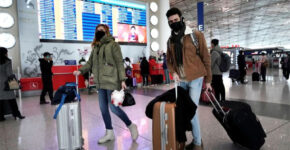9 Travel Reminders when Going to a Region Affected by Political or Military Conflict
![By ВО Свобода (_MG_1124.jpg) [CC-BY-3.0 (http://creativecommons.org/licenses/by/3.0)], via Wikimedia Commons](https://mrpassenger.com/wp-content/uploads/2014/03/crimea-conflict.jpg)
By ВО Свобода (_MG_1124.jpg) [CC-BY-3.0 (http://creativecommons.org/licenses/by/3.0)], via Wikimedia Commons
The conflict in Crimea, territorial claim problems in the South China Sea, unrest in Bangkok, and other conflicts in different parts of the world are definitely not great news for travelers. Political and military turmoil never mean anything good for travel. However, for some travelers, they are not enough reasons not to travel. Some travelers have very important reasons to go to an area affected by political or military conflict.
You could be one of these travelers. You could be one of those who need to remember the following travel reminders:
1. Be sure to have always have your travel documents.
In the midst of political and military conflicts, arrests (lawful or unlawful) are not uncommon. If you don’t have the right papers, you could easily be considered suspicious. A simple inability to present your passport can lead to an arrest or detention.
Have your travel documents photocopied. You can also have them scanned or take photos of them to be stored in your mobile phone. It’s important that you always have copies of these travel documents. You may also store a copy of the scans or photos of your travel documents online through various cloud storage services or even in your email drafts.
2. Stay updated. Read, watch, or listen to the news.
Before and while you head to your destination, be in the know. Go over news articles. Get updates through Twitter feeds from reliable information sources. Watch news coverages. You can’t go to an area affected by conflicts without knowing anything about what’s happening there. You can also call people you know who are already in the area. Don’t underestimate the importance of information. Moreover, keep track of government travel advisories.
3. Bring the right travel gear.
Travel light but do it right. You should have your mobile phone with you, enough clothes, and travel maps or guides (if your mobile phone does have them). Generally, when it comes to information needs, your mobile phone should already suffice, especially if it can access the Internet and if there is Internet connection available. Ideally, however, you should have a satellite phone to ensure communication anywhere, anytime.
It is also advisable to bring extra batteries or power banks with you. Solar or hand-cranked chargers could be great things to bring if you are heading to a place where electricity is not easily accessible. Moreover, consider bringing some preserved food and water with you. Conflicts are unpredictable and you’ll never know when circumstances would require you to be on survival mode.
4. Coordinate with local authorities. Get their contact details.
Ensure your safety with the help of local authorities. There are hotlines usually set up to help people who need to travel to conflict areas. If you are a non-citizen of the country you are visiting, coordinate with your country’s embassy. It’s important to let authorities know about your trip so they can be able to respond more quickly in case something happens to you or in case your family looks for you and you can no longer be contacted.
![By Various (dfbarrero, Iker Parriza, Barcelona Indymedia, Daniel van der Ree) [Public domain], via Wikimedia Commons](https://mrpassenger.com/wp-content/uploads/2014/03/conflict.jpg)
By Various (dfbarrero, Iker Parriza, Barcelona Indymedia, Daniel van der Ree) [Public domain], via Wikimedia Commons
5. Have your travel insurance.
Even when going to relatively safe places, travel insurance is already recommended. The need for it only increases when you are traveling to areas affected by political or military conflicts. Don’t think of the insurance only as something you can leave for the family you may leave behind. Travel insurance also covers injuries, including permanent ones, that you may sustain in the conflict areas you visit.
6. As much as possible, don’t travel alone.
If you really need to go to places like Crimea, Iraq, or Pakistan, try having someone to go with you. It’s never a good idea traveling alone to conflict areas. Being alone makes you an easy target of assailers and opportunists who will take their chance to mug or harass anyone they deem vulnerable. Traveling with someone does not guarantee safety but it significantly reduces the risk of being taken advantage of. It is also enables a support system that guarantees that somebody will be there for you when you need help.
7. Know how to safely carry your cash.
In conflict areas, cash is very important. Of course, it has to already be converted into local currency. Don’t expect to easily find currency exchange shops or bureaus in areas affected by conflict. Cash can help you get help. People in distraught areas will most likely do something for you if you can give them cash so be sure that you have it and that it is not easily taken away from you.
Hide your cash in secret pockets or have them neatly folded so they can be easily kept in disguised or unexpected containers. Don’t have everything hidden away, though. A mugger will not be convinced that you don’t really have any cash and will only try to inspect you further to find the money you are hiding.
8. Stay away from crowds.
In times of political and military conflicts, crowds are easy targets for those who want to spread fear and discord. There’s reason why the Singaporean government, for example, is advising citizens to stay away from crowds. Avoid the risk of becoming one of the victims of surprise bombings by going out only when it’s necessary. Even if the place you are visiting is relatively safe (in comparison to the area considered as the center of the conflict), bombings or other attempts to cause public panic are not remotely possible.
9. Be careful with what you write or express on social media or even in conversations or discussions with locals.
When going to areas where people tend to be politically or ideologically divided, avoid taking sides or criticizing anyone. It’s not the right time to express opinions especially if you are a foreigner. Don’t get yourself into trouble with locals by being very open with your beliefs. Keep a low profile as much as possible. Things you say or write online can easily spread and get back at you.
Keep yourself safe and minimize the possibility of encountering problems by taking note of the reminders mentioned above. Doing them isn’t really something difficult to do, but the benefits are greater than what you might think.
At nursewatches.co.uk the High-Quality replica watches for the best price on fake watch website.
1:1 Best Quality Cheap Omega Replica Watches UK Online Store. New Grade Swiss Movement Replica Omega .
The best replica breitling watches site in the world only sells the top quality AAA swiss replica watches.
![By Reorient (Wikipedia) [Public domain], via Wikimedia Commons](https://mrpassenger.com/wp-content/uploads/2014/03/map-of-world-conflicts.png)




